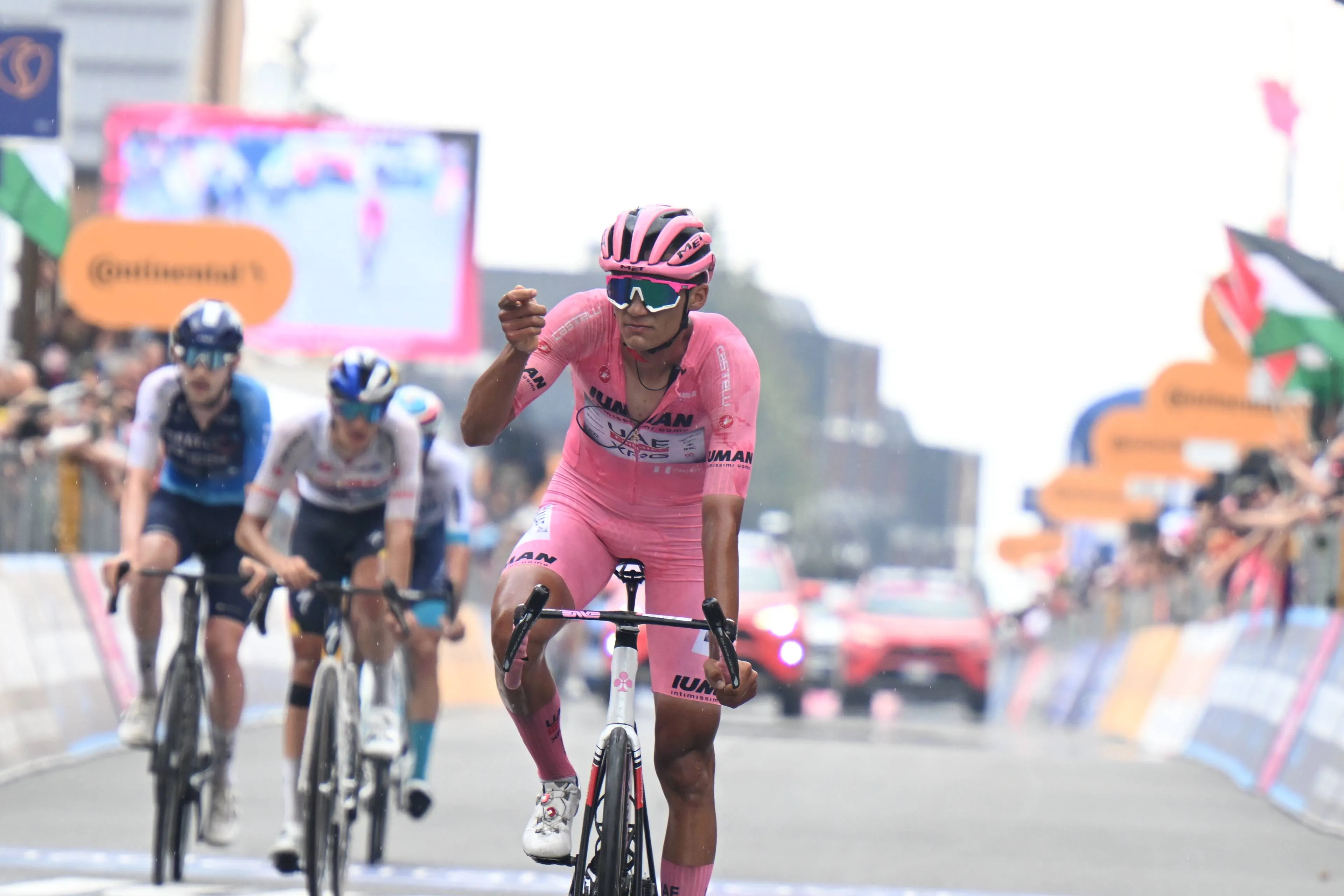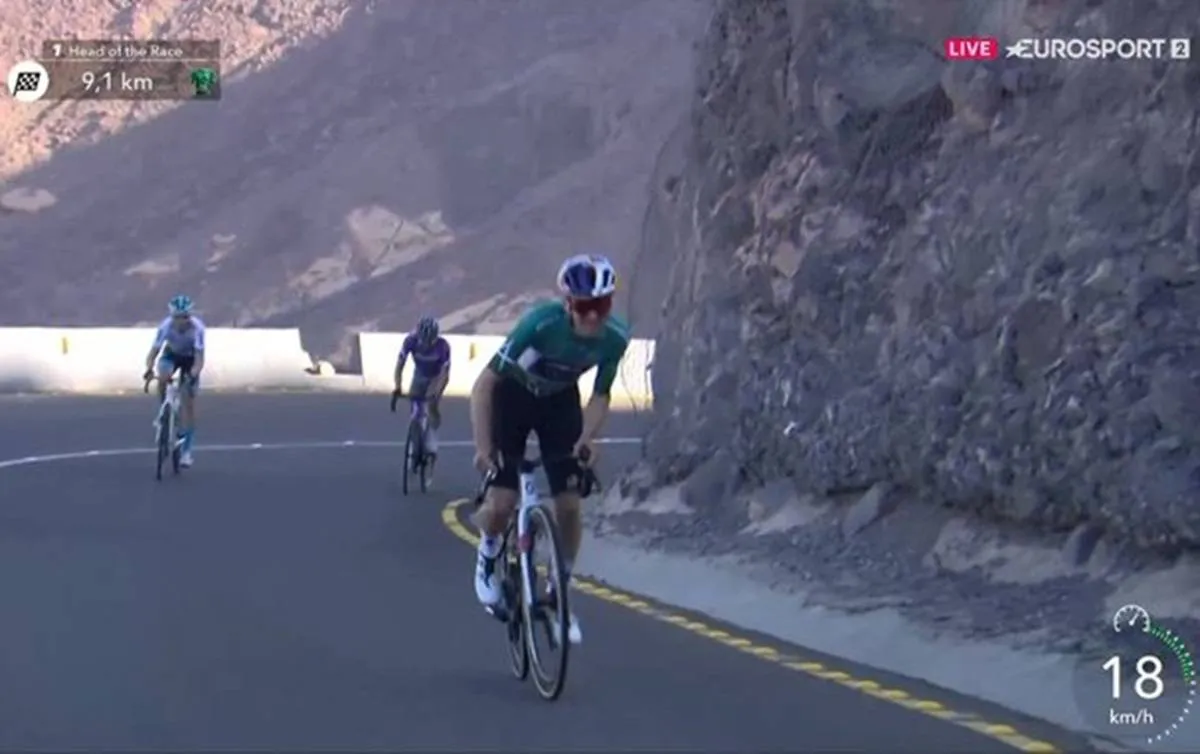🎥 Unseen scenes in France spark major safety controversy — but did it actually unite the peloton?
CyclingSaturday, 01 November 2025 at 06:30
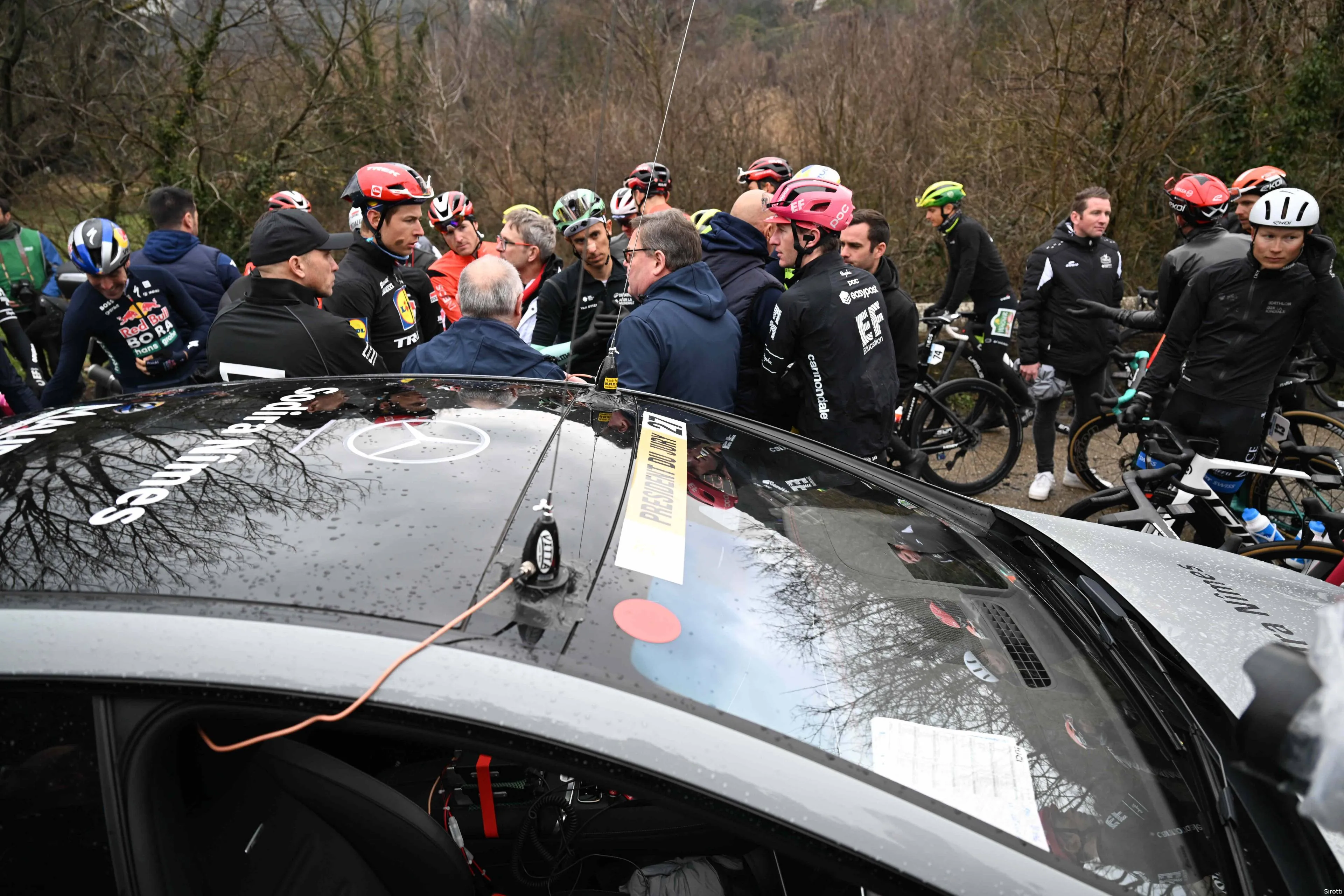
In 2025, safety in cycling was regularly a topic of discussion. There were incidents in various races, with the large-scale pro-Palestinian protests in the Vuelta perhaps being the most memorable for cycling enthusiasts. Early in the year, things went wrong in France during the Star of Bessèges. Looking back on the unseen chaos, the events there may have had one positive outcome.
ADVERTISEMENT
The Star of Bessèges was first held in 1971, at that time as a one-day race. Since 1974, the race has been a multi-day event, and since 1990, it has consisted of five stages. In 2025, it was time for the 55th edition of the French cycling race, which had only been part of the UCI Europe Tour since 2005.
With its spot in early February, the 2.1 race is an excellent warm-up for the spring, especially for French riders and teams. A year earlier, Mads Pedersen had been the overall winner, and he was back again in 2025. The Dane was considered the top favorite for the overall victory, although he had to watch out for riders such as Kévin Vauquelin and Filippo Ganna, who also had a decent chance with the time trial on the last day.
ADVERTISEMENT
In a pretty flat opening stage, everything went smoothly. A breakaway rode away and several teams tried to make their move in the strong wind, but in the end, it was Paul Magnier who took the first leader's jersey on behalf of Soudal Quick-Step.
The problems only started on day two. In the almost 166-kilometer stage from Domessargues to Marguerittes, things went wrong on the final climb. A car drove onto the road and had to reverse off the course. The peloton bunched up, and a crash followed. Things could have been much worse, however, so the riders got off lightly. Søren Wærenskjold ultimately won the high-speed sprint on behalf of Uno-X.
Read on below the video!
ADVERTISEMENT
The day after the first accident, things went wrong again, causing teams to withdraw
The organization was therefore on high alert before the start of stage three, although it had already faced a setback even before the start. Pedersen was suffering from stomach problems and would not start. Maxim Van Gils, who had crashed the day before as a result of the car on the course, would also not start.
In hindsight, the Dane and the Belgian were not the only riders to drop out of the race. In the third stage, things went wrong again. Less than an hour into the race, another car entered the course. The peloton hit the brakes and entered into discussions with the organization.
Unfortunately, it turned out to be without success. Eight teams decided to withdraw permanently. Among them were major teams such as Soudal Quick-Step, Decathlon AG2R La Mondiale, EF Education-EasyPost, Unibet Tietema Rockets, INEOS Grenadiers, Lidl-Trek, Red Bull-BORA-hansgrohe, Uno-X, and Lotto.
ADVERTISEMENT
Read on below the video!
De Lie explains why he continued: "That touched me"
As a result, only 78 riders continued, with almost half of the riders present heading home. Remarkably, Arnaud De Lie won the sprint on behalf of Lotto, who explained after the race why he had continued. "It was a dilemma. If everyone had stopped, the Star of Bessèges would probably have had a hard time continuing.
"So I didn’t ask myself whether to continue cycling,” the Belgian continued. “We respect the organizers; without races, we can’t do our job. When I was in the car warming up, we heard on the radio that if we didn’t continue, it would mean the end of the Star of Bessèges for good. That touched me.”
ADVERTISEMENT
Nevertheless, the Belgian transmitted an important message. “Safety comes first, absolutely, and a car on the course is unacceptable. But at the same time, races like this can only exist thanks to the riders. Thanks to the organizers, we can do what we love.” In addition to De Lie, Baptiste Veistroffer also continued. “We lost contact with the rest of the team in all the chaos. We were already returning when the others were on their way to the bus, just like many other teams. It was pure chaos.”
Continue reading below the photo!
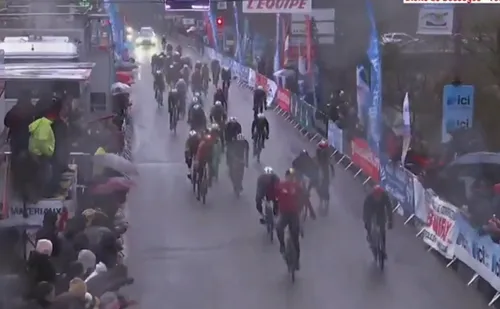
Organization criticized: "Must something terrible happen before anything actually changes?"
There was strong criticism of the organization. “Our team is one of the teams that decided not to continue after another car entered the course,” wrote Soudal Quick-Step. “We find this unacceptable and have decided not to continue because we prioritize the safety of our riders.”
“There was a vote and the majority of the riders did not want to continue,” explained INEOS Grenadiers sports director Zak Dempster. “We wanted to race here, but apparently that is not possible. There are no guarantees of safety in cycling, and the organization states that it only has ten motorcyclists. That is not perfect, but now we are risking the safety of the riders.”
Red Bull sports director Heinrich Haussler had already expressed his criticism earlier in the week. “I'm new as a sports director, but the UCI has to ask itself: do these guys deserve to organize a race? They really need to look at it, and, in my opinion, the answer is no. It's a shame if the race disappears, but does something bad have to happen before anything actually happens?”
Continue reading below the photo!
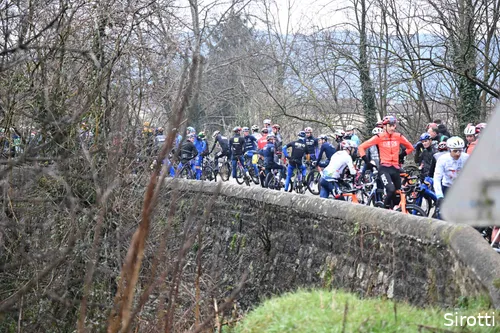
"Teams and riders only pull together when there is a minute’s silence at the start because someone has died"
The wait was on for a response from the UCI, which announced that no more UCI points would be awarded. “The UCI is investigating the two incidents. Measures are being taken to prevent such problems from recurring, even though some teams have already withdrawn from the race. The UCI may impose sanctions on the organization and emphasizes that the safety of riders is taken extremely seriously,” it said.
The riders' union CPA made its voice heard through its director, Adam Hansen. "The CPA and SafeR will push the major race organizers to share their knowledge with the smaller organizations. RCS, Unipublic, ASO, and Flanders Classics are part of SafeR, and together we must help the smaller organizations to bring their races up to standard. There should be no difference in organization, only in format and course."
And what about the organization? It also responded, in a rather remarkable way. “The organization would like to sincerely thank the teams that participated in the third stage of the Star of Bessèges for their professionalism and respect for the organizers who organize this event every year.”
However, it was Steven de Jongh, sports director of Lidl-Trek, who came up with the most striking words on his Instagram account. “Teams and riders only pull together when there is a minute’s silence at the start because someone has died. Sad but true,” wrote the Dutchman.
Continue reading below the photo!
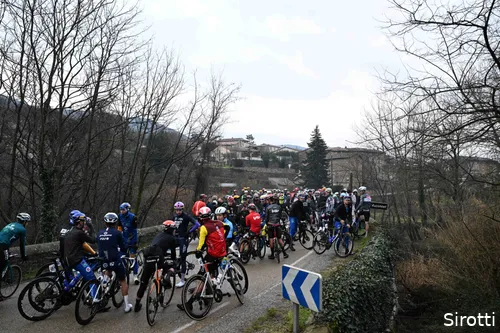
Criticism of the organization, riders, and UCI continues: "I often find the French teams to be a problem," said Zonneveld
The Star of Bessèges 2025 was decapitated in this way, reigniting the debate about safety. Vauquelin ultimately managed to win the overall classification thanks to victories in stages four and five, after which the Frenchman spoke of “a special week.”
But that was by no means the end of it. Criticism of how the race unfolded continued, including from Thijs Zonneveld. The Dutchman was surprised that the teams continued. “As far as I'm concerned, you start to lose the right to say anything about safety in the near future if you send your own riders onto a course where the organization cannot guarantee that it is closed to cars at all.”
For example, all the French teams continued. “I often find the French teams to be a problem. I think it's a recurring thing, also with the ASO and so on. I believe the major French teams have a greater responsibility in this regard. Teams like Cofidis, Arkéa... Come on, guys,” he said critically.
Zonneveld called it “very ugly” that half of the riders continued. Still, the Dutchman primarily focused on the organization. “Riders get a yellow card if they do something wrong. And an organization that lets cars drive right into the peloton, what are we going to do about that?”
Continue reading below the photo!
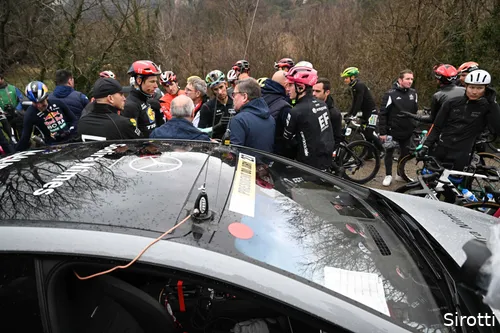
What are the consequences of what happened in Bessèges?
The organization continued to defend itself after the race. There was even a remark directed at the riders who had abandoned the race. “I can say that the riders who were still there yesterday are real fighters. The riders have to understand that it's not easy for the organizers. Apart from ASO, who can completely close off the roads? We are not capable of doing that.”
The UCI finally intervened and took measures against the French stage race. The unsafe conditions and the subsequent disruptions in the race were the reason for the UCI to take action. The organization of the Star of Bessèges could therefore expect a hefty fine and risks the race being subject to stricter controls in future editions.
The question is: how much has actually been achieved? The discussion about safety would resurface several times throughout the year, but we did not see any further division in the peloton, as we had in France. Recently, a stage in the Tour of Holland was canceled after the peloton decided to hit the brakes.
So the events in the Star of Bessèges have not necessarily led to improved safety. Since then, however, there seems to be increasing unity within the peloton. While it appears that authorities are repeatedly failing to deliver on safety, it is perhaps this unity among riders that keeps alive the hope of a completely safe cycling sport (to the extent that this is possible).
Read also
IDL-productions
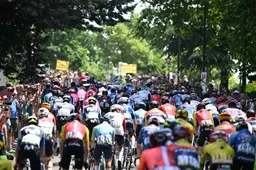
Vacancy: Growth Editor IDL Procycling - (native) English
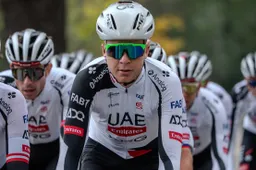
Gravel world champion Florian Vermeersch wants to take next step in the Classics — with and without Tadej Pogacar
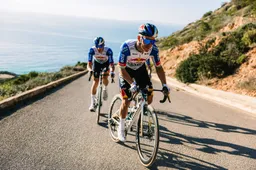
Tour of Valencia 2026 | Remco Evenepoel continues the hunt, but that is certainly not the only exciting thing
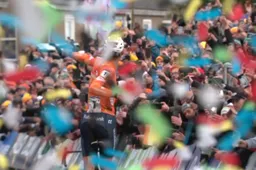
Roodhooft on the Van der Poel formula that helps Mathieu — and anyone who wants to follow — win at Alpecin-Premier Tech

Thibau Nys: “I don’t think World Championship was among Mathieu van der Poel’s best 10 days this winter”
Latest Cycling News

Vacancy: Growth Editor IDL Procycling - (native) English
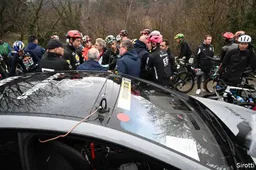
Star of Bessèges improves safety, but big teams still stay away

“I want a say in my own training”: Uijtdebroeks enjoys more autonomy after leaving Visma | Lease a Bike

Former pro cyclist, who became an OnlyFans model after being sacked by EF Education-EasyPost, arrested in Italy
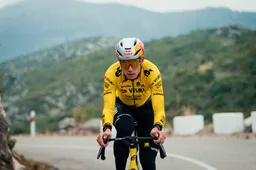
Van Aert heads to altitude camp with Visma | Lease a Bike, despite still-limiting ankle
Popular Cycling News

Thomas and Rowe question Visma and Vingegaard decision: “What’s Jonas thinking?”

Former pro cyclist, who became an OnlyFans model after being sacked by EF Education-EasyPost, arrested in Italy
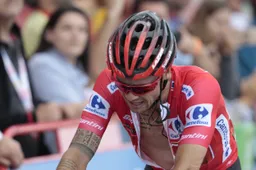
Former rider (41) attacked on the streets of Barcelona: “The biggest fright of my life”

With support from Pieterse, Casasola and more, Cameron Mason explains why he 'froze' again at World Championship
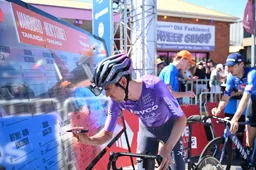
Jonas Vingegaard and Visma | Lease a Bike can add another rival for the Giro d’Italia
Latest Comments
- Nice!Bea22-01-2026
- Those events are mental rest for him. Fun, without expectations. *Sagan lost his abilities because he gained weight and got lazy. Pogi will likely retire before that has a chance at happening.Veganpotter14-12-2025
- Ah, the consequences of riding for Israel.Veganpotter11-12-2025
- Pidcock could follow everyone but Pogi while finishing 3rd. No second place rider this season😃Veganpotter16-11-2025
- Now the Palestinian protestors can stop their whining. Trump came to the rescue. So they can now STFU and go back to waving the rainbow flags.raufus15-10-2025
- Cracked the code lol. If it was that easy to 'crack the code' jonny Vegas would be charging up the Kwaremont giving Pog a dose of his medicine. Evenepoel can't match pog on a climb and neither can mvdp. Anything with a half difficult climb and Pog smashes the field. Even on flat(ish)parcours like Roubaix it came down to a mistake and crash by pog to definitively crown mvdp. MSR is the only one that Pog probably won't win.kevpt10-10-2025
- We've seen this movie before. I think Pogacar is doping.DeadBlow10-10-2025
- 👍Bea08-10-2025
- 👌🏻Bea08-10-2025
- What the data doesn't show is how much of an effect drafting had for evenepoel. Pogacar went with del toro at 100km whilst Evenepoel was still in the bunch. Despite the bike changes he still had a lot of assistance getting back to the bunch. Pogacar then rode 60km solo whilst evenepoel rode with Healy/Skjelmose until going solo in thd last 10-15km. Thats ~20% less power / energy requirements for 45-50km. Apples and oranges...kevpt30-09-2025
Loading
